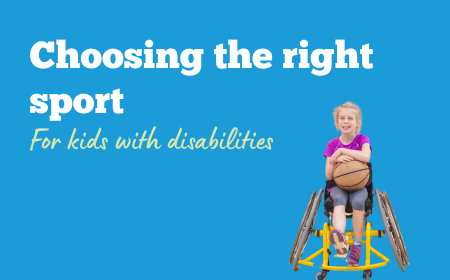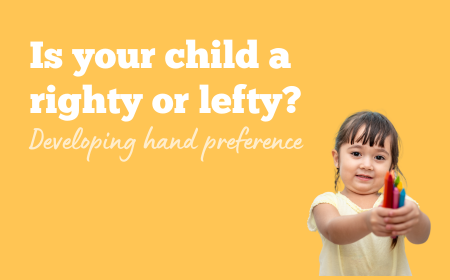What is Dysphagia?
Dysphagia is a term used to describe difficulties with swallowing that can make it hard for your child to safely and comfortably eat or drink. Children who have had multiple medical interventions during early infancy and childhood, or who have complex medical needs may struggle to learn how to eat and drink safely, or how to eat a range of foods effectively without intervention .
For many children with dysphagia, meeting typical milestones for eating and drinking are not possible, and they require treatment to develop their safety and independence for mealtimes and hydration.
Proactive therapy within a multidisciplinary team is crucial in supporting a child with dysphagia to reach their optimal eating and hydration needs.
At South West Kids Clinic, we focus on understanding your child’s unique needs and provide tailored support through exercises, techniques, and strategies to ensure mealtimes are safe and enjoyable. Our goal is to make eating a positive experience and help your child thrive.
Causes of Dysphagia
Understanding the underlying cause of your child’s dysphagia helps in creating effective intervention plans to support and improve a child’s swallowing abilities. Paediatric dysphagia, or difficulty with swallowing, can arise from a variety of factors, including:
- Genetic conditions: Genetic disorders such as Down Syndrome, VACTERL association, and DiGeorge syndrome are some examples of conditions that can greatly affect a child’s ability to develop typical feeding and drinking skills
- Pregnancy and birth complications: Preterm birth, low birth weight and significant/long term ventilation needs can often impact a child’s ability to learn to eat and drink in an expected manner.
- Congenital Conditions: Heart defects, cleft lip or palate, and Cerebral Palsy are typically diagnosed in utero or at birth, and require specialised treatment early due to known association with delays in eating and drinking skills.
- Low tone or musculoskeletal conditions: having low or poor body tone affects a child’s ability to sit upright for extended periods such as mealtimes, these conditions can also impact the muscles needed for eating and drinking and can often cause delays in developing expected eating and drinking skills
- Medical Conditions: Chronic illnesses, neurological disorders, and gastrointestinal issues can impact the swallowing process.
- Anatomical Abnormalities: Structural issues in the mouth, throat, or oesophagus can impact proper swallowing.
Our Approach to Paediatric Dysphagia
Our dedicated team is here to provide comprehensive support for children with dysphagia. We explore your child’s needs and families goals for feeding and drinking to develop a tailored plan that supports the safest and most independent eating and drinking skills through our multidisciplinary team. We work closely with families and specialists to create meaningful changes for you and your child in the home and community.
- Oral motor skills for eating and drinking
- Dietary modification to support independence and skill building
- Progression to solid foods
- Meeting weight and growth milestones
- Fine motor skills required for self feeding, and cutlery use
- Optimal positioning for sitting for meals
- Responsive Feeding Practises
- Cervical Auscultation
- Dietary Modification
- Progression to solid foods
- Referrals and support in medical investigations
- Ensuring nutritional and caloric needs are being met for each child's needs
- Individualised equipment provision - such as modified cutlery or utensils or specialised seating for ideal positioning for eating and drinking
- Equipment and assistive technology prescription, monitoring and support
Frequently asked questions
What is the difference between a Dysphagia and fussy eating?
Dysphagia is a condition that impacts a child’s ability to safely or effectively eat and drink, most often due to underlying medical needs or complex surgical interventions in early childhood. Children with Dysphagia often cough and choke during mealtimes, or may have a history of aspiration. Fussy eating usually describes when children are highly selective of the foods or fluids they will accept or be near, they may often gag at the sight of food or gag when eating a less-preferred food.
What should I do if I suspect my child has dysphagia?
If you suspect your child has dysphagia, the first step is to consult with your child’s paediatrician and Speech Pathologist for a thorough assessment. They can evaluate your child’s feeding difficulties and determine whether further testing is needed. Early diagnosis and intervention are crucial, so addressing concerns with a professional can help ensure your child receives the appropriate care and support to improve their swallowing abilities.
How is Paediatric Dysphagia diagnosed?
Diagnosing paediatric dysphagia is challenging and requires comprehensive assessment from your child’s doctor or specialist team. To further evaluate swallowing function, your child may be referred for diagnostic tests, such as a videofluoroscopic swallow study, also known as a modified barium swallow test.
Will my child ever be able to eat normally?
Dysphagia can differ depending on each child and their medical needs. Often safety is the first area that needs to be met in therapy, before working on learning typical skills. Our team at South West Kids Clinic will work together to establish feeding skills that are not only safe, but that work towards eating similar foods to your family as independently as possible.
What should I expect during therapy sessions, and how long will it take to see improvements?
Therapy will differ for each child as treatment depends on the type or cause of your child’s swallowing disorder. Treatment may include strategies such as food modifications, positioning adjustments and environmental changes. We may also use tools and food to support your child’s oral-motor development and engagement in mealtime. The duration of therapy and the time it takes to see improvements can vary based on your child’s individual needs and the severity of the dysphagia. Your therapist will provide regular updates and work with you to set realistic goals and expectations.
How can I support my child’s development at home?
Our therapists will provide you with specific strategies and activities to do at home to reinforce the skills learned during therapy sessions. Consistent practice at home is critical to making effective progress.













